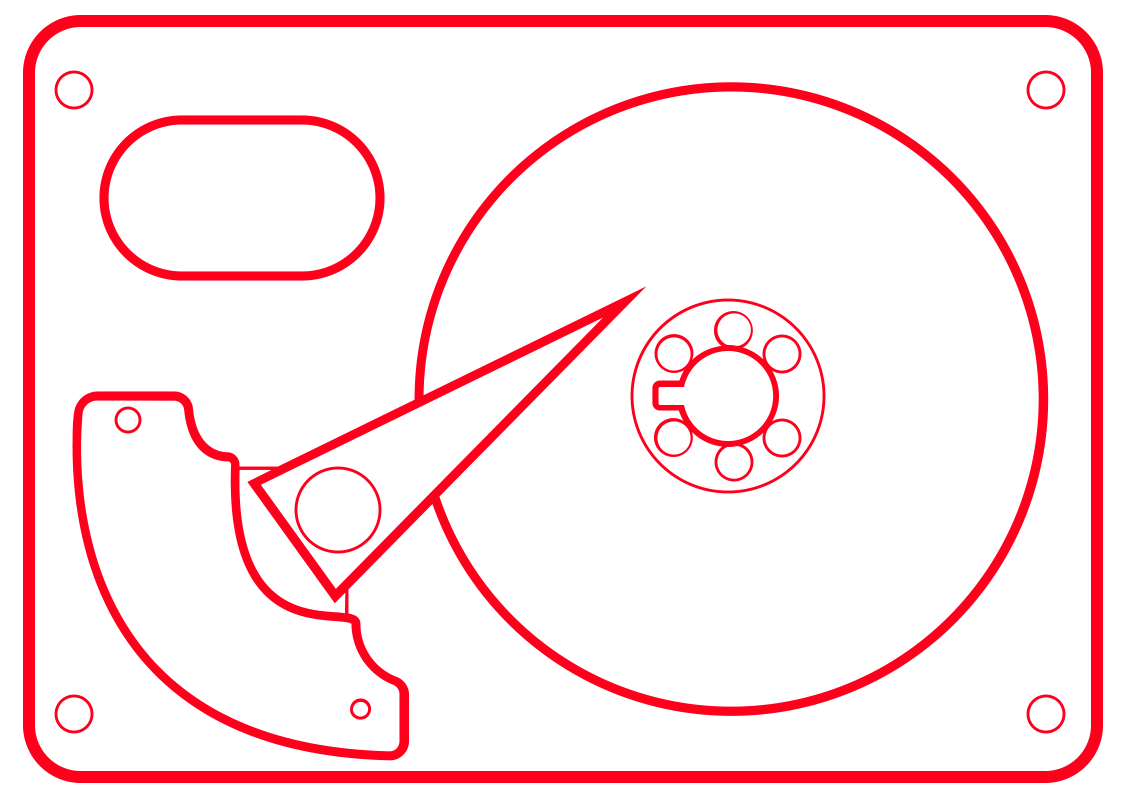So you have a head or beeping hard drive, and you want to know what the difference is? The difference between dead or beeping is that a dead drive is likely a problem with your PCB, while beeping is likely a problem with the heads being stuck inside your drive.
Why is my hard drive dead?
There could be numerous reasons why a hard drive would be dead. It could be a manufacturing defect if it is dead out-of-the-box new, it could have been damaged in a physical accident such as liquid damage, or it could have been involved in a power surge situation.
The most common reason for a Hitachi hard drive to be completely dead is a problem with the PCB. A printed circuit board (PCB) is a board used to connect electronic components together. It is made of a thin sheet of insulating material, typically fiberglass, with conductive pathways etched into it.
Fixing a dead hard drive with a bad PCB
There is no surefire way to fix a bad PCB, but there are a few things that can be done to try and repair it. The first thing to do is to clean the PCB with a mild cleaning solution and a soft cloth. If there are any damaged or missing components on the PCB, they can be replaced or repaired. Sometimes, simply cleaning the connectors with something like a pencil eraser is enough to get your hard drive’s PCB working again.
But most often a bad PCB will require replacement rather than repair. When you replace a PCB you have to make sure you transfer over the ROM chip as the new PCB will likely not work with your drive without that chip transferred over. Good Hitachi data recovery companies will offer PCB replacement.
Why is my Hitachi hard drive beeping?
There could be a number of reasons why a Hitachi hard drive is beeping. Some possible reasons include a loose connection, a failing hard drive, or a problem with the data on the hard drive. If the beeping is accompanied by other symptoms, such as a clicking noise or the drive not appearing in your computer’s file explorer, then it is likely that the hard drive is failing and you should back up your data as soon as possible.
The most common cause of a beeping hard drive is when the heads get stuck on the platter. This happens usually to smaller 2.5-inch drives, but it can happen to desktop drives as well. Basically, the heads come into contact with the platter instead of moving to their parking area, and the friction causes the drive motor to not be able to spin up.
Fixing a beeping Hitachi hard drive
There is no one-size-fits-all answer to this question, as the best way to fix a beeping hard drive may vary depending on the specific problem that is causing the issue. That is why it is best to look for a professional data recovery company that offers affordable prices and good customer service.
The most common cause of a beeping hard drive is that the heads are stuck on the platter. If this is the case the fix is to open the hard drive inside a cleanroom environment, then use a special tool to lift the heads off the platters and move them back to the parking area. the heads then need to be checked under a microscope for any damage before they can be used again.
If the heads are damaged in any way, they need to be replaced before powering on the drive again. Damaged heads can cause scratching on the hard drive platters, which will cause permanent data loss.
Dead or Beeping, try data recovery
Data recovery is a process of salvaging inaccessible data from corrupted or damaged secondary storage, removable media, or files. It is often used in situations where normal data recovery methods like scanning the device for errors and fixing them fail. Data recovery can be a very time-consuming and expensive process, but it is often the only safe way to retrieve important data that has been lost.
When you lose important data, it can be a frustrating and overwhelming experience. The good news is that there are data recovery companies that can help you get your data back. But how do you know which data recovery company to trust with your data? Here are a few things to look for when considering a data recovery company:
- Experience: Look for a data recovery company that has experience recovering data from the type of device you have lost data from. The company should also have experience with the type of data you have lost (e.g., photos, documents, etc.).
- Success Rate: Find out what the company’s success rate is for recovering data. The company should be able to give you a general idea of their success rate for the type of data you have lost.
- Cost: Data recovery can be expensive, so be sure to get an estimate from the company before you commit to using their services.
- Customer Service: Find out what other customers have said about the company’s customer service. You should be able to find customer reviews online.
- Data Security: Make sure the company you use has strict security measures in place to protect your data. The company should use encryption to protect your data while it is in their possession.
When you lose important data, it can be a frustrating and overwhelming experience. But by taking the time to find a reputable and experienced data recovery company, you can rest assured that your data is in good hands.
